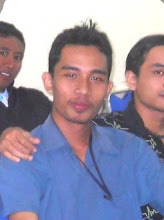PHILIP DORLING
March 11, 2011 - 4:03PMAds by Google
Corruption
Corruption monitor service Stop corruption, Report it to usSECRET US diplomatic cables have implicated Indonesian President Susilo Bambang Yudhoyono in substantial corruption and abuse of power, puncturing his reputation as a political cleanskin and reformer.
The cables say Mr Yudhoyono has personally intervened to influence prosecutors and judges to protect corrupt political figures and pressure his adversaries, while using the Indonesian intelligence service to spy on political rivals and, at least once, a senior minister in his own government.
They also detail how Mr Yudhoyono's former vice-president reportedly paid millions of dollars to buy control of Indonesia's largest political party, and accuse the President's wife and her family of seeking to enrich themselves through their political connections.
The revelations come as Indonesian Vice-President Boediono visits Canberra today for talks with acting Prime Minister Wayne Swan and discussions with officials on administrative change to reform Indonesia's corrupt bureaucracy.
The US diplomatic reports — obtained by WikiLeaks and provided exclusively to The Age — say that soon after becoming President in 2004, Mr Yudhoyono intervened in the case of Taufik Kiemas, the husband of former president Megawati Sukarnoputri.
Mr Taufik reportedly had used his continuing control of his wife's Indonesian Democratic Party, then the second largest party in Indonesia's Parliament, to broker protection from prosecution for what the US diplomats described as "legendary corruption during his wife's tenure".
In December 2004, the US embassy in Jakarta reported that one of its most valued political informants, senior presidential adviser T.B. Silalahi, had advised that then assistant attorney-general Hendarman Supandji, who was leading the new government's anti-corruption campaign, had gathered "sufficient evidence of the corruption of former first gentleman Taufik Kiemas to warrant Taufik's arrest".
But Mr Silalhi, one of Mr Yudhoyono's closest political confidants, told the US embassy the President "had personally instructed Hendarman not to pursue a case against Taufik".
No legal proceedings were brought against Mr Taufik, an influential political figure who now serves as speaker of the People's Consultative Assembly, a largely ceremonial body representing members of parliament.
The US embassy also reported that then vice-president Jusuf Kalla allegedly paid "enormous bribes" to win the chairmanship of Golkar, Indonesia's largest party, during a December 2004 party congress.
The President's wife and relatives feature prominently in the US embassy's political reporting, with American diplomats highlighting efforts of the President's family "particularly first lady Kristiani Herawati . . . to profit financially from its political position". As early as 2006 the embassy commented to Washington that "first lady Kristiani Herawati is increasingly seeking to profit personally by acting as a broker or facilitator for business ventures . . . Numerous contacts also tell us that Kristiani's family members have begun establishing companies in order to commercialise their family's influence."
Highlighting the first lady's behind-the-scenes-influence, the embassy described her as "a cabinet of one" and "the President's undisputed top adviser".
Other leaked cables indicate Mr Yudhoyono has used the Indonesian State Intelligence Agency (BIN) to spy on his political allies and opponents.
According to a senior Indonesian intelligence officer, Mr Yudhoyono directed BIN chief Syamsir Siregar to instruct his officers to conduct surveillance on one of the most senior cabinet ministers, State Secretary Yusril Mahendra, while he made a secret trip to Singapore to meet Chinese businessmen.
The President also reportedly tasked BIN to spy on rival presidential candidates. Mr Silalah told US diplomats Mr Yudhoyono "shared the most sensitive BIN reporting on political matters only with himself and Cabinet Secretary Sudi Silalahi".
Although Mr Yudhoyono won a big victory in the 2009 election, US envoys quickly concluded he was running out of political puff. After political controversies through late 2009 and into last year led to his popularity taking a sharp fall, the embassy said the President was increasingly "paralysed". "Unwilling to risk alienating segments of the Parliament, media, bureaucracy and civil society, Yudhoyono has slowed reforms," it said.
Source : http://www.theage.com.au/world/yudhoyono-abused-power-20110311-1bqwj.html









0 comments:
Post a Comment